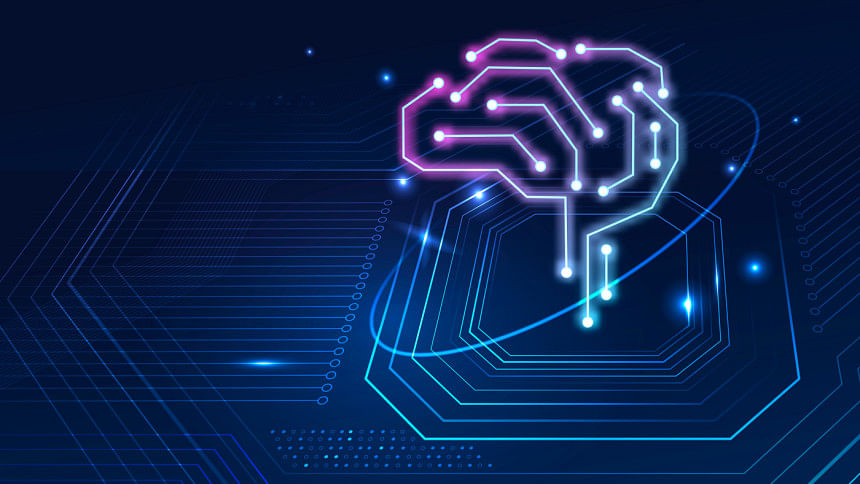The West’s AI dominance is the new colonialism

In the colonial era, empires extracted gold, rubber, and labour. Nowadays, data and cheap click-work are the new spoils. The West's AI boom thrives on digital colonialism, where personal data and low-wage labour from the Global South fuel its wealth. Silicon Valley firms harvest user information while outsourcing tasks to Nairobi and Manila, replicating colonial power dynamics.
The AI revolution mirrors past hierarchies, with the Global North monopolising benefits and the Global South as a raw material provider. Western dominance in AI is a new form of imperialism. The question is whether the Global South can fight back, and if so, how, before this digital subjugation deepens further?
Although it could be thought of by many as "the great equaliser," AI perpetuates old inequalities. Big Tech and Western nations are extracting value from the Global South in familiar ways. Tech giants steal tweets, photos, and voices from the Global South to feed their AI. People in places like Nairobi and New Delhi contribute vast amounts of data without compensation, while the flow of this data travels outward, much like the colonial trade routes that once drained resources from the periphery to the West.
In the Global South, millions of workers perform invisible labour for AI companies, earning as little as $1.50 per hour for tasks like moderating disturbing content or annotating data. In Kenya, India, and Latin America, AI's growth reinforces colonial-like dynamics, with low-paid workers bearing the brunt of exploitation. In Kenya, workers filter toxic content for OpenAI, while locals help train AI models for self-driving cars in Uganda and Nigeria.
Indian tech workers face similar conditions, often working as gig labourers without job security. Skilled researchers are syphoned off to Silicon Valley, mirroring colonial extraction.
Additionally, the Global South's dependence on Western AI platforms like OpenAI's GPT or Google's cloud services can also be seen as colonial economic dependency. Only five percent of Africa's AI talent have access to the computational power and resources needed to carry out complex tasks, known as compute. The African AI researchers lack access to sufficient computing resources, forcing them to rent American servers or use free tools, trapped in a cycle of subjugation.
AI colonialism goes beyond economics; it also involves language and cultural erasure. Big Tech's AI silences half the world's languages. They function best in English, Chinese, or European languages, while many African and South Asian languages are poorly represented. For example, until community-driven projects stepped in, languages like Hausa and Bangla had little AI support despite having millions of speakers. This neglect leads to AI colonising cognitive space, where a Western digital framework overshadows local cultures. AI perpetuates a Western worldview in subtle ways, ignoring diverse local realities.
In Latin America, the AI imbalance is visible in their importing of surveillance tech from Western firms. Countries like Brazil and Ecuador use facial recognition and biometric systems with little oversight, echoing the colonial past when foreign powers controlled domestic security. These examples expose a consistent pattern: the Global South provides labour, data, and markets, while Western firms retain control, profits, and power. AI's benefits flow upwards, while the burdens remain on those at the bottom, which is the age-old system of exploitation.
Major US companies like Google, Amazon, and Microsoft control most AI patents, cloud infrastructure, and models, creating dependency for the Global South. Western nations, especially the US, use their power to restrict access to critical AI resources through export controls on semiconductors and by blocking services like OpenAI in sanctioned countries. This is similar to colonial-era tactics, where industrial technologies were withheld from colonised nations to maintain control.
Ironically, the West often presents itself as the champion of AI ethics and human rights, but its enforcement of these principles is selective and self-serving. Tech companies promote ethical AI guidelines at home, only to look the other way when their products are used abusively abroad. For instance, Western firms with ethical codes supply surveillance AI to regimes with poor human rights records, profiting from opaque deals in the Global South. These companies have a responsibility to respect human rights, yet their tools frequently enable the oppression of journalists and dissidents. The West also dominates AI governance forums, sidelining Global South voices in shaping the rules of AI. This results in hypocritical rules written by the powerful, often imposed on developing nations with little consultation.
Despite this oddity, resistance is emerging. Grassroots projects like Mozilla's Common Voice are crowdsourcing speech data in underrepresented languages like Hausa and Tamil, allowing local developers to create tech that reflects their culture using their mother tongue. Karya, an ethical data company in India, is redefining AI labour by paying workers fair wages, granting them ownership of their data, and ensuring they benefit from its resale.
Countries are also uniting for AI cooperation, with the BRICS bloc and other emerging economies forming alliances to reduce dependency on Western tech. Although nascent, it is a world where no single empire controls AI. Data sovereignty laws are also gaining traction, as nations like Nigeria, Kenya, and Ghana pass legislation to keep personal data within their borders to boost their local tech industries. In Latin America, countries like Brazil and Chile are discussing "data localisation" as part of their digital strategies.
Open-source AI efforts, such as Chile's Latam GPT, tailored for Spanish, and Africa's Masakhane project aim to strengthen Natural Language Processing (NLP) and create inclusive and locally relevant AI models. These efforts are breaking Big Tech's monopoly and showcasing the Global South's potential to develop technology on its own terms.
The stakes in the AI struggle are already high as a new digital empire is being formed, dominated by a few nations and companies. However, the Global South has the numbers, talent, and moral authority to demand change. It must mainly push for regulations against data exploitation, secure a seat in AI governance, and build local capacity for independent innovation. Meanwhile, the West must confront the unsustainable nature of AI's colonial-style inequity. History shows empires fall when people resist. With collective action, AI can be for all, not just the privileged few.
Shaikh Afnan Birahim is a postgraduate student of Computing Science at the University of Glasgow in Scotland.
Views expressed in this article are the author's own.
Follow The Daily Star Opinion on Facebook for the latest opinions, commentaries and analyses by experts and professionals. To contribute your article or letter to The Daily Star Opinion, see our guidelines for submission.

 For all latest news, follow The Daily Star's Google News channel.
For all latest news, follow The Daily Star's Google News channel. 



Comments